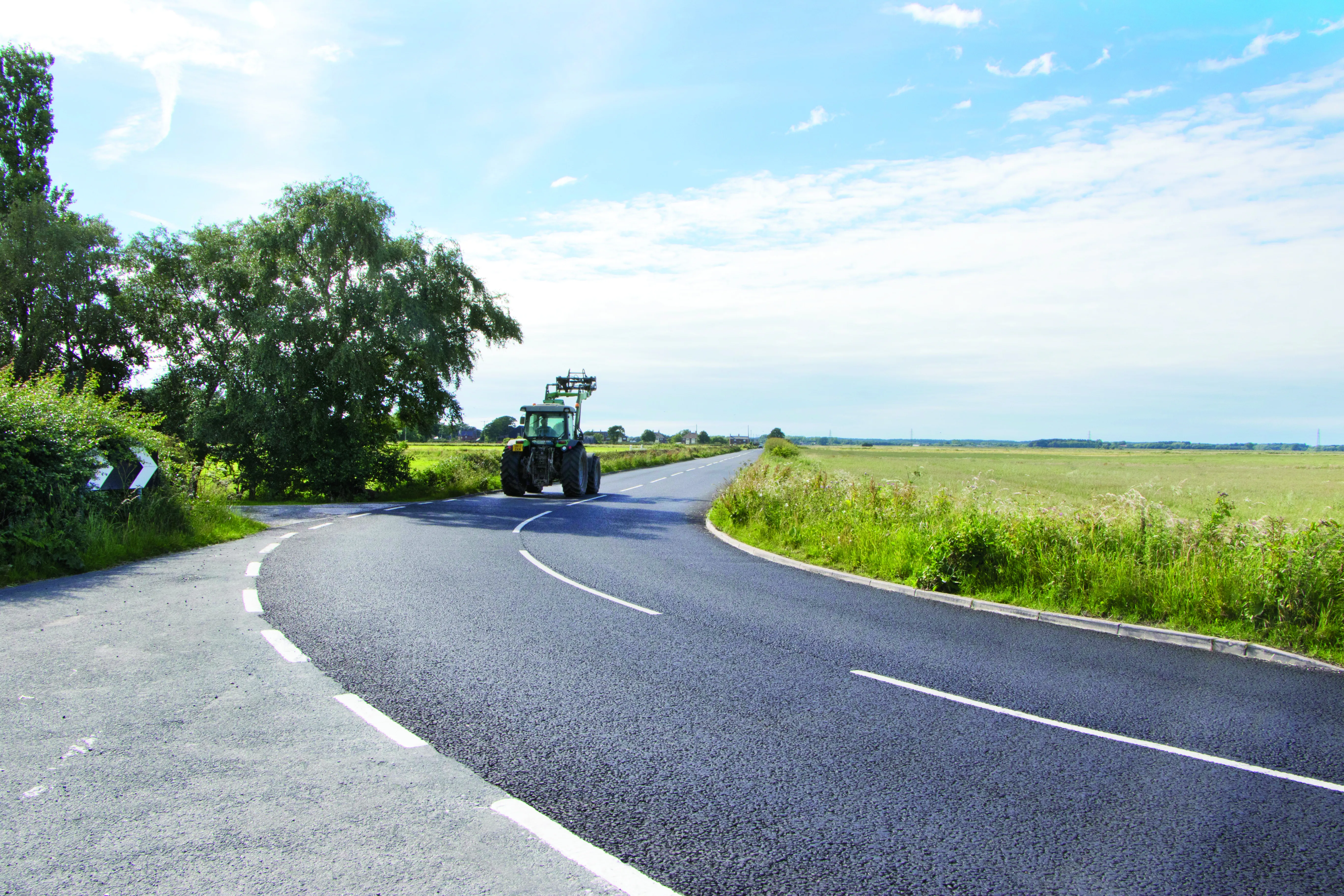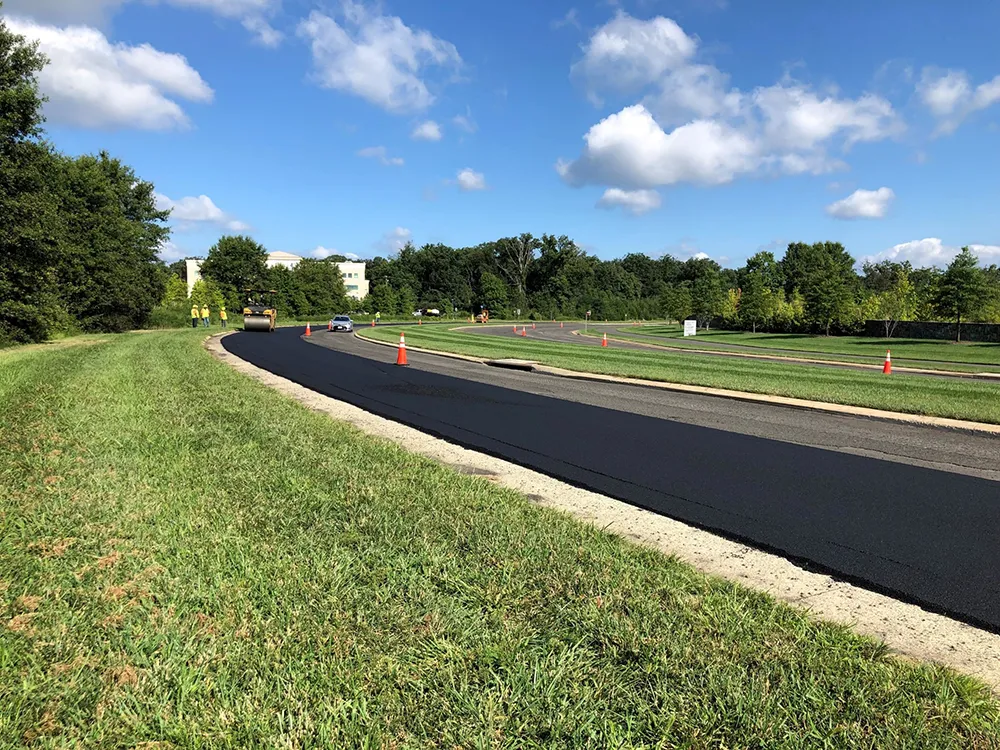
Building materials supplier CEMEX says that VIALOW, the company’s new range of low-temperature, low-carbon asphalts, enables embodied carbon (CO2e) reductions of up to 20%.
Importantly, all existing CEMEX asphalt mixes can be converted to VIALOW to help reduce CO2 emissions.
CEMEX announced its climate action strategy in February 2020. By the end of December, the company said it had reduced CO2 emissions in its European operations by close to 35% - a full decade ahead of the target. CEMEX also declared a 55% CO2 reduction target for its European operations, aligning with the European Commission goal for all member states.
As technology and the industry shifts toward low-carbon asphalt, the best interim way to sequester the rest of the CO2 footprint to make it a carbon neutral product is through carbon offsetting. VIALOW is part of CEMEX’s VERTUA family of low-carbon and sustainable building solutions. It comes with the option to offset residual CO2 to make it a CarbonNeutral product, in accordance with the CarbonNeutral Protocol.
CEMEX is working for this with environmental business consultancy Natural Capital Partners, which created the CarbonNeutral Protocol in 2002 and manages is for clients. Natural Capital, based in London, provides guidelines for businesses to achieve this carbon neutrality according to its CarbonNeutral Protocol. The company says it has more than 300 clients in 33 countries, including ING, Microsoft, M&S and PwC. It also has offices in Dublin, in the US in Grand Rapids, San Francisco, Charleston and Colombo as well as with partners in Chile, Guatemala and Sri Lanka.
After engineering carbon reductions into the asphalt mix design, CEMEX calculates the embodied carbon generated from extraction, transportation and processing of raw materials, product manufacturing and distribution. The residual carbon is then offset, making the asphalt CarbonNeutral from cradle-to-customer.
Carbon offsetting is the removal or reduction of emissions of carbon dioxide and other greenhouse gases from the atmosphere to compensate for emissions made elsewhere. CEMEX will facilitate this by financing projects which physically remove CO2 from the atmosphere, such as planting trees. A CarbonNeutral certificate is then issued to the client.
CEMEX calculates the embodied carbon (as CO2e) in the VIALOW range using a Carbon Footprint Calculator in accordance with relevant standards and guidance.
VIALOW uses a specially formulated bitumen additive to enable manufacture at up to 40°C lower than standard asphalt mixes with no compromise in performance, according to the company. All with the added benefit of achieving up to 20% reduction in embodied carbon emissions.
The range includes the VIALOW Zero option, a CarbonNeutral product, as set out by standards from Natural Capital. VIALOW Zero complements the CEMEX VERTUA range of low-carbon building solutions. This further enhances CEMEX’s own Future In Action strategy that commits the manufacturer to net zero CO2.
CEMEX says that VIALOW offers other benefits alongside sustainability credentials. The lower temperature of the manufacturing process can help improve long-term performance and durability of the asphalt; high temperature in conventional mixes leads to more oxidative hardening of bitumen than seen in lower temperature variants.
Reduced-temperature asphalt also offers safety and environmental benefits which include a reduced risk of burns and lower odours – meaning a safer and more pleasant working environment for both on-site workers and neighbours to the construction site. The reduced mixing and paving temperatures of low temperature asphalt can reduce fume generation by around 50% for around each 10°C reduction in temperature.
Furthermore, by virtue of being a low-temperature asphalt, VIALOW reaches appropriate trafficking temperatures faster than conventional hot mix asphalt, allowing the re-opening of a jobsite more quickly after completion of road works. Alongside minimising disruption and enabling construction programmes to remain on time, this offers further benefits to the environment, as statistics show that stationary traffic caused by road closures creates four times as many pollutants when compared to moving vehicles.
VIALOW is available all year round in all asphalt concrete base, binder and surface courses as well as hot rolled asphalt but only where pre-coated chippings are not required.
“CEMEX is totally committed to improving the sustainability of its operations and supporting its customers to do the same,” said Carl Platt, CEMEX’s director of asphalt, paving, and building products for Europe. “With the launch of VIALOW, CEMEX aims to make it simple for customers to choose more sustainable and environmentally-friendly asphalts that have a lower embodied carbon, offset residual emissions and help drive vital change.
“Moreover, this industry-leading range of low temperature asphalt is designed to produce faster construction times, minimise disruption and reduce road maintenance costs alongside the added benefit of a carbon footprint reduction,” said Platt.
The launch of this range follows a report from the UK’s All Party Parliamentary Group on Highways. The report identified warm-mix asphalts (WMA) as an underused opportunity to reduce CO2 emissions associated with the production for asphalt for roads. At the time of publishing, the report found that WMAs represent less than 4% of UK asphalt production. Yet, if all UK asphalt production had been switched to WMA, it would have saved at least 61,000 tonnes of CO2 – the equivalent of cutting almost 480 million kilometers of car journeys.
For more information about VIALOW visit the VIALOW website.









